#avatar the last airbender critique
Explore tagged Tumblr posts
Text
I love Zutara as much as the next girlie, but I think people romanticizing Zuko catching Azula's lightning in the Final Agni Kai are doing Zuko's character a massive disservice. He would have done that for anyone. Not just anyone in the Gaang, anyone.
He did it for the division he ended up getting burned over. He did it for his subordinate that was going to fall to his death after the ship was struck by lightning. He did it for Lee, when he was kidnapped by Gao. He did it for Iroh, when he confronted his dad and tried to break him out of prison. He did it for the whole Gaang at the Western Air Temple. He did it for Sokka, Suki, and Hakoda at the Boiling Rock.
His whole character revolves around saving everyone else first. Hell, he tried to save Zhao of all people! There's no way that would have gone well for Zuko if Zhao had actually taken his hand. He always does what he thinks is right first before considering his own safety.
Zuko always saves other people. Even if, especially if, he can't save himself.
#look i love zutara#but zuko has no conception of personal safety#there are better zutara moments in atla!!!!#like i will absolutely still read fanfic that romanticizes that scene#but it still would have happened if literally anyone else had been standing there#zutara#zutara criticism#i'm going to tag this as#anti zutara#just in case someone doesn't want to see a critique of the ship#i'm not really critiquing the ship#but out of an abundance of caution#uh actual antis if you see this: behave yourselves lol#zuko#avatar the last airbender#atla
5K notes
·
View notes
Text
No, actually. It is not “shaming Katara’s femininity” or her “maternal traits” to critique the ways in which her character was relegated to a the passive role of the Avatar’s grieving widow and largely ignored by the narrative post-ATLA. Oh my god, we are not “degrading” Katara by pointing out the sexist implications of how her character was handled and to suggest such a thing is just so…infuriating and very revealing of the underlying sexism in the fandom.
No thoughts, just people endlessly glorifying Katara’s maternal tendencies without bothering to question or investigate the adverse effects of her parentification. Apparently anyone who criticizes the writing of Katara’s character is just denigrating “traditional femininity” and THEY are the true misogynists! Not the male writers or viewers who consistently minimize Katara’s significance to the narrative and mock fans who ship her with anyone other than Aang.
Not at all, really we should just accept the conditions of the narrative uncritically and never question the biases of the creators. How dare we criticize them and point out the underlying sexism in their writing?
#pro katara#atla discourse#it’s making me insane and you would not believe the fury a certain TikTok evoked from me#these people HATE HATE HATE to see any logic in the critiques provided by zutara fans because they are so blinded by their desire to consume#the show completely uncritically.#Good lord some of these fans are SO misogynistic and yet we’re the ones who get called *problematic* for shipping zutara#avatar the last airbender#avatar zuko#avatar#zutara#pro zutara#atla critical#atla#atla netflix
576 notes
·
View notes
Text
honestly, i think the double standards with catra and glimmer stems from something other than pretty privilege, and it's something i've seen in a lot of media.
take, for instance, the atla fandom demonizing aang and katara but coddling azula. or the su fandom villanizing steven but making excuses for spinel and lapis.
and the reason for this is that villains or antagonists are always given more freedom to make mistakes, to do heinous shit, to be cold or rude or insensitive to others. the logic being that "they're the villain, of course they're gonna be horrible".
with heroes, on the other hand, there's this subconscious judgment whenever they make a mistake. heroes are meant to be perfect and as much as people say that they want more antiheroes, they always judge a hero based on how morally good they are.
which explains why katara is hated on for saying something insensitive out of repressed grief and trauma, but azula is coddled for committing multiple war crimes.
why glimmer is bashed for being kinda mean and making some bad choices due to grief and pressure, but catra's conscious choice to attempt genocide and willing participation in war is justified.
why steven is villanized for having a mental breakdown after years of suppressed trauma, but spinel's attempts to kill dozens of people on earth are excused.
why mabel is demonized for being kinda selfish sometimes and for being manipulated into giving away something she didn't know the importance of, but bill is loved by everyone.
why korra is blamed for trusting her uncle and losing her connection to the previous avatars, instead of unalaq being held accountable for manipulating her (unalaq isn't really coddled by the fandom but there's a huge victim blaming problem).
simply put, people want heroes to be pure. they want surface-level flaws like clumsiness and awkwardness, not REAL flaws. as much as these people say that they want more morally grey or complex heroes, the truth is that they can't even handle their hero being kinda rude to someone.
especially with characters like glimmer, mabel and katara, who have a more traditionally feminine aesthetic and is generally a good person, people expect them to be well-behaved and perfect all the time. even though both these characters were shown to be passionate and stubborn and fierce from the very beginning, people are still blindsided when they actually take a bold stance or act on their emotions.
and with steven, he was a nice, happy, easygoing kid in the beginning and he tried to remain optimistic throughout all the trauma he went through, so people just expect him to do that forever. to always repress his feelings and never give himself the space to express them, to always focus on being a therapist for literally every other character and to never prioritize himself.
and like sure, villains are meant to be evil. i'm not telling anyone to water down their villains. but there's a difference between liking a villain and excusing their actions. i like azula. i like all of the villains in tlok. i like bill cipher. i even like catra and white diamond minus their shitty redemption arcs.
but i'm not going to set double standards by justifying everything that a villain does and demonizing a hero for acting out of line once. especially if the hero actually takes responsibility for their actions and tries to be better, and the villains just get forgiven for doing the bare minimum.
#rant#long post#anti stans#spop#she ra#steven universe#atla#avatar the last airbender#tlok#the legend of korra#gravity falls#fandom discourse#fandom rant#fandom critical#fandom criticism#fandom critique
169 notes
·
View notes
Text
More shows that have a better color palette than Hazbin Hotel
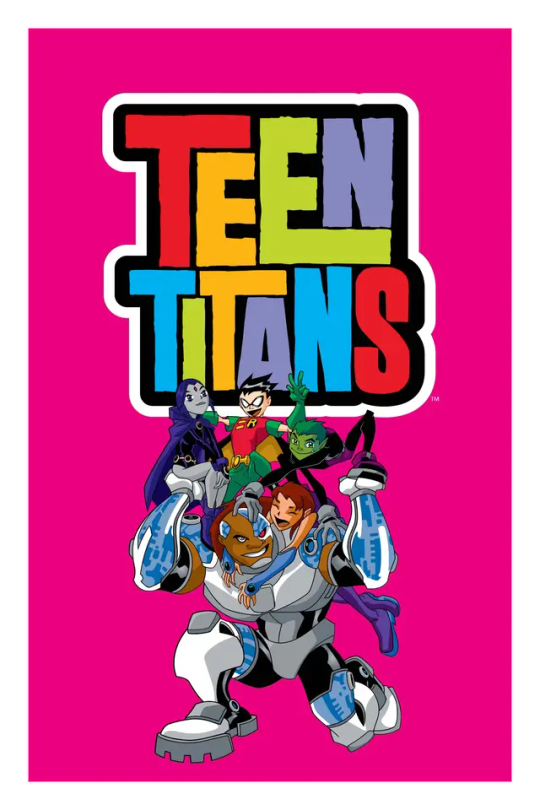
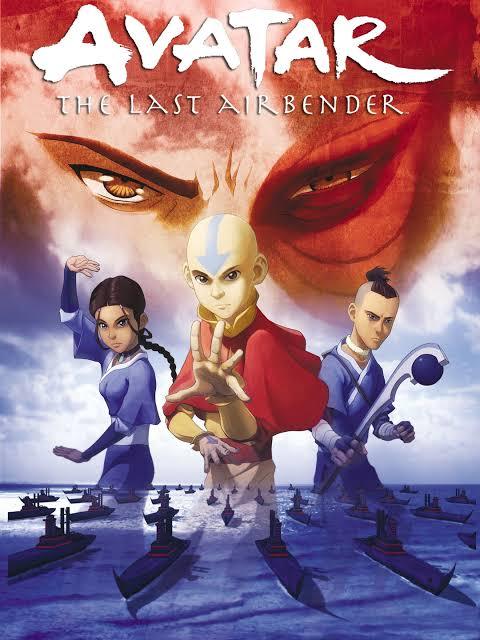
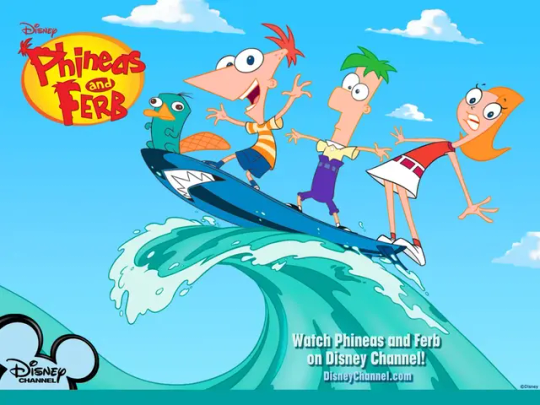
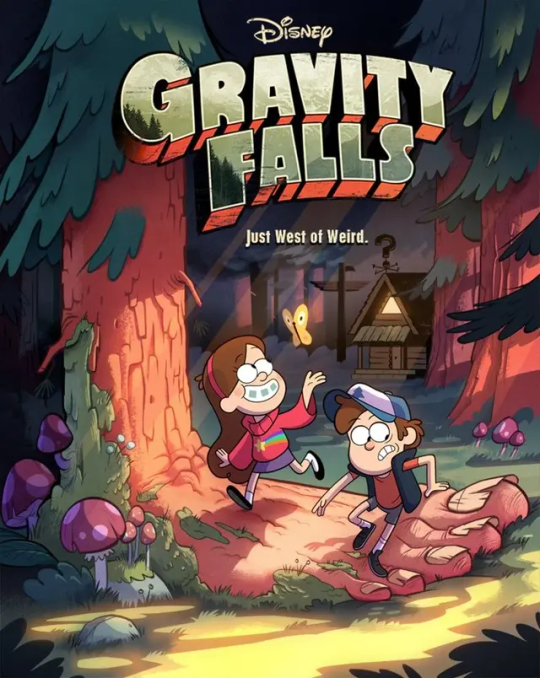
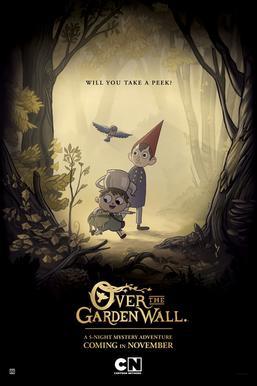
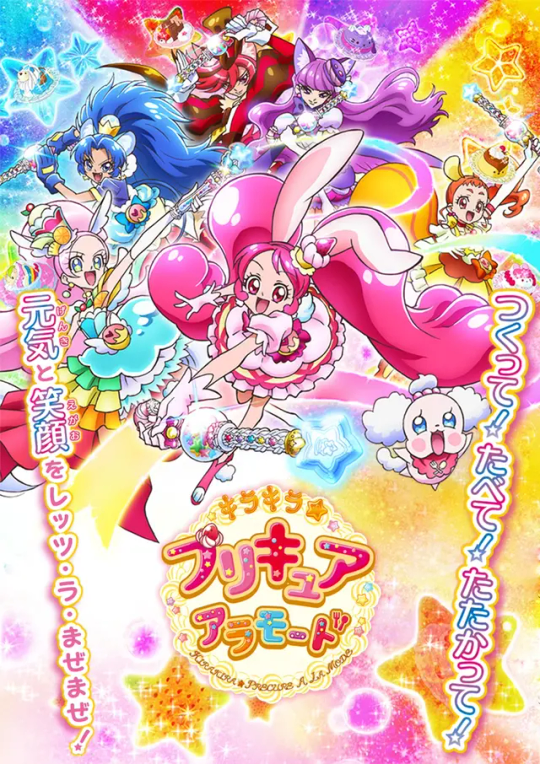
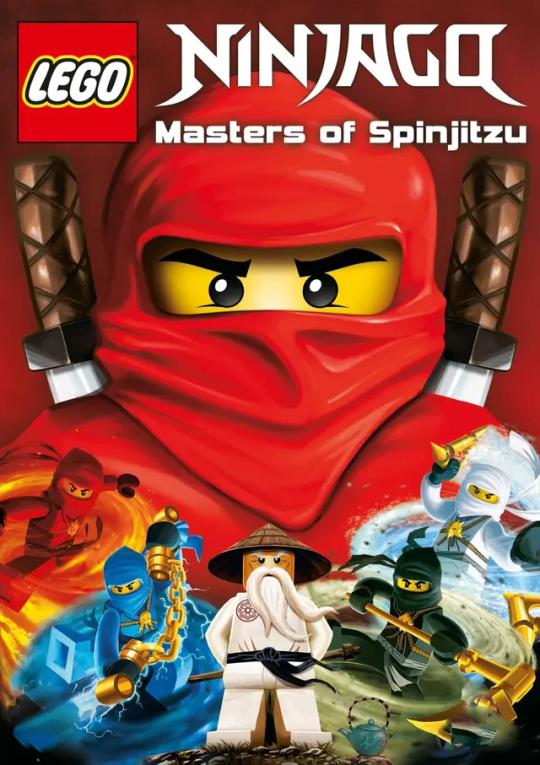
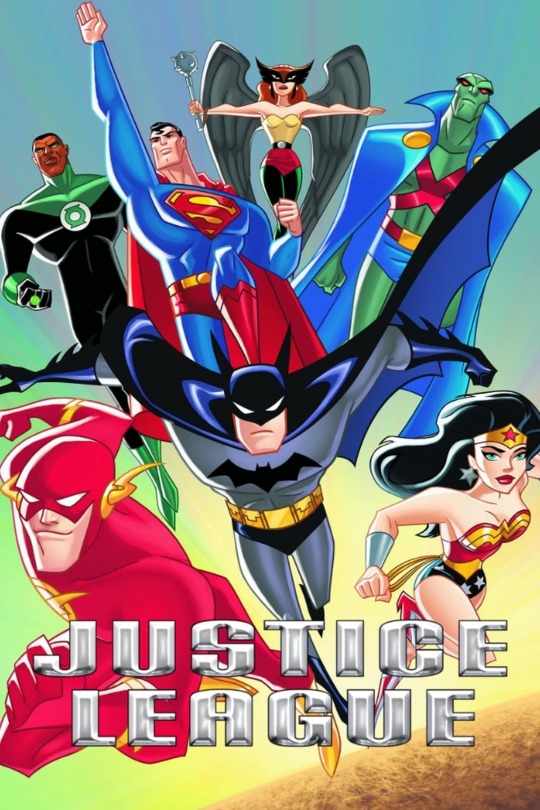
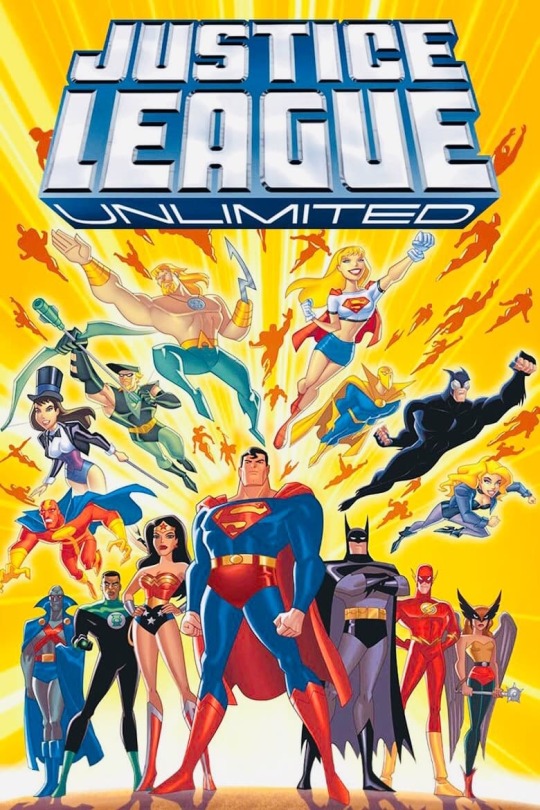
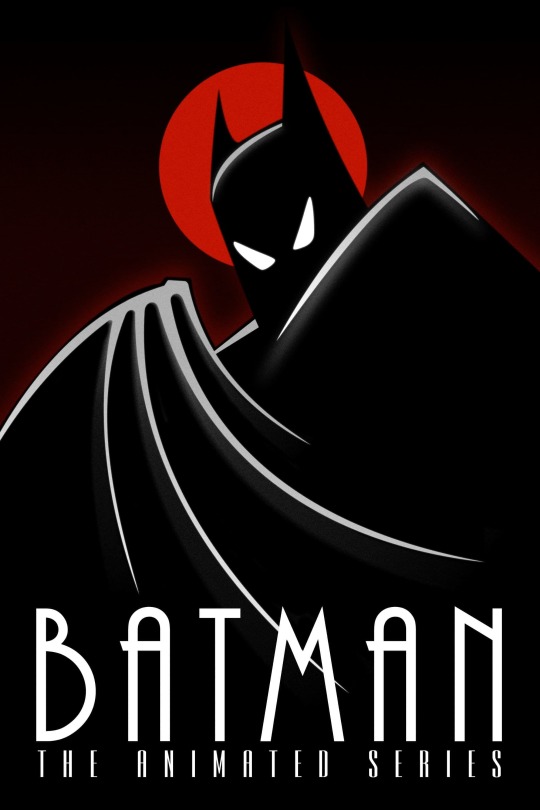
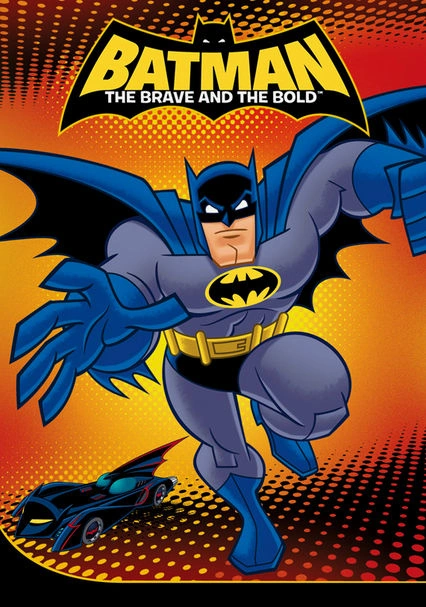
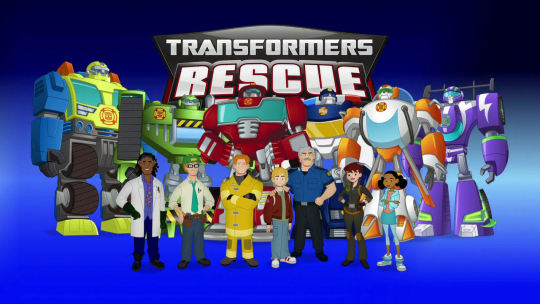
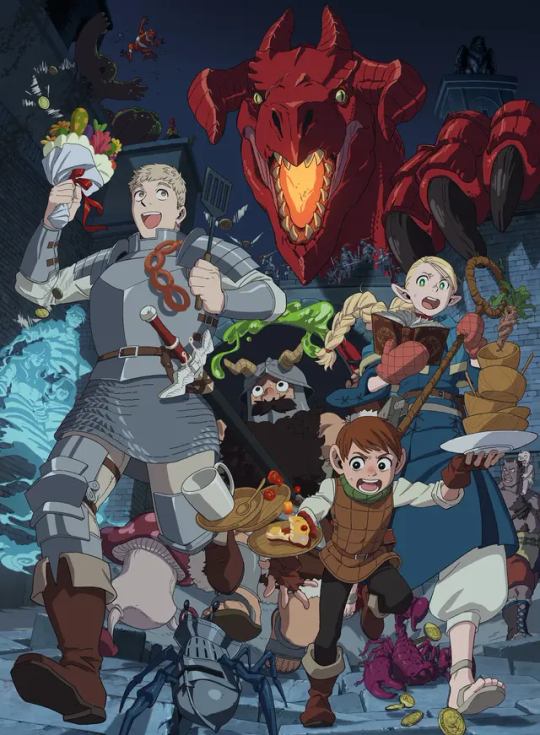
#hazbin hotel critical#hazbin hotel criticism#hazbin hotel critique#anti hazbin hotel#teen titans 2003#avatar the last airbender#phineas and ferb#gravity falls#over the garden wall#kira kira precure a la mode#lego ninjago#ninjago#justice league 2001#justice league unlimited#batman the animated series#batman the brave and the bold#transformers rescue bots#dungeon meshi#delicious in dungeon
170 notes
·
View notes
Text
Read "Suki, Alone". Liked it in general. But can they please, please hire someone who knows both the show's actual events and how to follow through on a character arc? Because guys. Guys. That comic is not implying about Suki what they meant it to be implying, and all because of literally one line.
So like. From a writer's standpoint:
What they meant to do: show Suki as a community-oriented person who cares for her people, and believes in everyone succeeding together.
As opposed to (spoilers): the thief girl they set her up in contrast with, who's pretty upfront and consistent on primarily looking out for herself. She betrays Suki for one (1) corn chip to improve her own life at the prison, no surprise.
But the problem is: they give Suki an inspirational line to the effect of "we're all working together and we'll all break out together"
You know
The thing she does not do in the show
So if both the show and this comic are canon, then instead of setting up a compare/contrast with the thief girl, they've just set up a comparison. One were Suki is arguably worse, because she's been leading a significant number of prisoners on with her "we'll all fight and win our freedom together!" business, only to straight up cut them out of the escape loop and abandon them, whereas the thief is only leading Suki on in the sense that Suki keeps telling her what it's morally correct to think and confuses snide replies with agreement
My dudes. My fellow writers. You people actually being paid for this. There were so many ways to fix those awful implications against our girl's character, the simplest of which would be to not include that line. Or they could have, you know, made it canon compliant with what actually happens in the show, so that this comic doesn't set Suki up as a betrayer instead of a community builder. Like... just send all her good prison buddies off to other prisons in the wake of the warden finding out they're colluding. Have it timed to be right before the next new prisoners arrive, thus setting it immediately before the Boiling Rock episodes, so Suki didn't have anyone left in the prison she'd want to take with her on a breakout. For bonus points, include a page or two of her and her Kyoshi warriors opening up the cell of one of her prison friends post-war, thus implying she's tracking down and actually fulfilling her promises. Maybe even show her doing the same with thief girl, who was established as being imprisoned on false charges anyway, and also showing that Suki is A) the bigger person, and B) willing to acknowledge her own role in mistakes (because I cannot emphasize enough how much thief girl was not hiding her own priorities, and it was Suki who approached HER with all this, not the girl ever doing anything special to weasel her way in) (this would also open up an opportunity for paralleling Suki's earlier in-comic mistake of not listening to one of her friend's very valid thoughts and feeling, which lead to the girl leaving their island alone pre-canon; a "seeing people as they are, not what you want them to be" moment)
Anyway yeah enjoyable enough for a quick read but another one for the "this can't be canon or the characters are So Much Worse than they were in the actual show" pile
At least Aang didn't promise to murder anyone in this one
#I also have minor critiques like#Why are all the guards drawn as short and noodly-armed as Sokka pretending to be a guard#Why are the guards the only ones allowed to have funny lines#Did anyone consider using a lack of dialogue in some panels to establish mood and let the visuals speak for themselves (no they did not)#Why is Azula villain monologuing for so long at the start#She does like her villain lines but in the show they're short#And generally aimed at fresh opponents#Not last week's old news#I kept wondering why Azula was even there instead of generic lackeys especially since she had to have been dealing with the conquest of#Ba Sing Se around then. big This Could Have Been An Email vibes#Also as a gardener#HOW FAST WERE THOSE PRISON PLANTS GOING TO SEED AND WHERE CAN I GET SOME#Apparently they needed minimal (almost no?) light and tiny cracks of space and were nutritious and tasted good raw and grew so fast they#Could substantially affect the diets of multiple prisoners within a short time span?#I WANT THEM IN MY INDOOR SETUP ASAP#Screw lettuce I want Suki's Magic Beans#avatar the last airbender#atla#Suki#There continue to be no comics in Ba Sing Se but this was a better attempt than some#Suki Alone
275 notes
·
View notes
Text
Broke: Zutara/Kataang will be canon in NATLA!
Woke: NATLA is a poorly written, poorly characterized dumpsterfire. So it doesn't really matter which ship happens. Both are equally bland. Both will suck.
#viv's natla critisism#natla critical#natla critique#natla critisism#anti natla#atla katara#atla aang#atla zuko#katara#aang#zuko#zutara#kataang#katara x aang#aang x katara#katara x zuko#zuko x katara#atla memes#atla#a:tla#avatar aang#avatar: the last airbender#avatar the last airbender#avatar
39 notes
·
View notes
Note
People always slander Steven universe and Aang pacificism actually Charlie Morningstar is the example people been talking about them. Steven and Aang atleast they willing to fight kill sure they don't want to but fight is not a problem. Charlie deserve better than this
Nah, Steven still is a wuss while Aang is legend tier. However, Charlie Morningstar is a wuss who makes Steven look more assertive.
#helluva boss#helluva boss critical#helluva boss criticism#helluva boss critique#vivziepop critical#vivziepop criticism#vivziepop#anti-vivziepop#hazbin hotel#hazbin hotel critical#hazbin hotel criticism#anti-hazbin hotel#anti-hazbin#aang#steven universe#avatar the last airbender
42 notes
·
View notes
Text
Look at this guy on Twitter saying that the other members of Team Avatar should have accepted Zuko as easily as Toph did.
Dude needs to learn that the real world does not work like that.

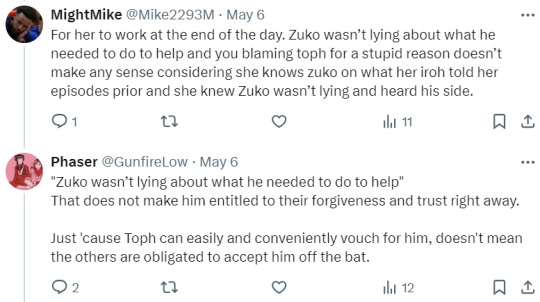
He's also even trying to say that Toph's attitude is fine and is justified by her parents' treatment of her.
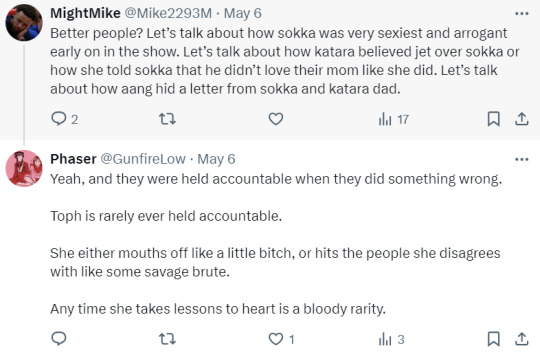
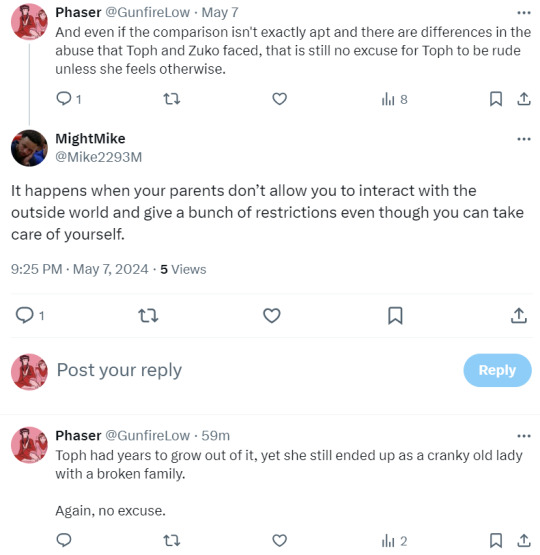
#Avatar#Avatar: The Last Airbender#ATLA#A:TLA#Fan Dumb#Bad Take#Bad Takes#Zuko#Toph#Anti-Toph#Toph Critical#Zuko Critical#Character Critique#Critique#Criticism#The Western Air Temple#The Blind Bandit#The Runaway#Book 2#Book 2: Earth#Book 3#Book 3: Fire#TLOK#LOK#Legend of Korra#The Legend of Korra#Katara#Aang#Sokka#Team Avatar
26 notes
·
View notes
Text
Avatar the Last Expositionbender: Thoughts on the new Netflix adaptation from a near 20-year-long fan of ATLA (first three episodes)
Disclaimer: I’ve been a huge fan of ATLA since literally the day it dropped on February 21st, 2005. I’ve probably seen the original show at least 200 times all the way through. That said, I absolutely am trying to go into this Netflix show with an open mind. I don’t want to denigrate it just because it’s not exactly the same as the original.
I can't draw any final conclusions because I've only watched through episode 3, but my impressions are... not good. I’m going to try and leave some of the nitpickier stuff to my live tweeting thread and just focus on the big things here.
My biggest takeaway thus far is that the show has decent to great special effects, set design, and cinematography, and it is just ALL completely let down by an atrocious script and bizarre changes to both the plot and characters. I don’t think any one decision is the decision that’s breaking this show for me. I think it’s a death-of-a-thousand-cuts kind of breaking the show for me.
(A lot) more below the cut
Let’s start with the structure. The original ATLA is a serialized show (there is one overarching plot), but each episode is smaller scale with short plotlines that are resolved within the runtime of one or two episodes (leans more episodic). The Netflix adaptation seems to drop this format and centers the main plot in pretty much every episode. Many of the little stories still technically happen, but they’re reframed to be in service to the greater plot. E.g. They no longer visit Kyoshi because Aang just wanted to have a fun little adventure and ride some giant fish, he does so because he needs to learn more about the Avatar from Kyoshi.
This is not an inherently negative change, but it is a negative change in this case and I’ll tell you why: it completely destroys the character building that the original series was known so well for. Let me explain.
I can point to any episode in the series and immediately tell you if it's a Katara-centric episode, a Sokka-centric episode, a Zuko-centric episode, etc. I can tell you exactly what the characters did, what the themes were, and how the characters have grown from beginning to end. I can tell you the threads that were woven in which ultimately serve the larger plot, from huge shifts to tiny threads you wouldn’t even notice.
I’ll take episode 2 from the Netflix series and compare it to the three episodes I believe it’s based on: The Warriors of Kyoshi and The Winter Solstice (parts 1 and 2).
In the original series all three of these episodes are largely Aang-centric, with significant moments developing Sokka as well. Kyoshi is the point at which Aang’s lackadaisical attitude toward being the Avatar is significantly challenged for the first time. He spends significant time in Kyoshi being fawned over and messing around despite realistically having done nothing to earn that praise. It’s the damage to his friendship with Katara + Zuko coming in which ultimately humbles him. The Winter Solstice episodes are where Aang’s determination and goal is solidified and a sense of urgency is developed.
On Sokka’s end, Kyoshi is a significant moment for him as a character. He has some of his core beliefs challenged and not only does it humble him, he apologizes and works to better himself. In The Winter Solstice episodes (particularly part 2) we see, for the first time, glimmers of his ingenuity and his role as the idea/plan guy with how he develops a plan to open the door so Aang can speak to Roku.
In terms of the plot, The Warriors of Kyoshi ultimately doesn’t have much to say at this moment, but it is setup for later payoffs in seasons 2 and 3 (the Kyoshi Warrior ruse Azula pulls in Ba Sing Se, Suki’s presence in The Boiling Rock and subsequently joining the Gaang, etc.) so it’s not wasted. The Winter Solstice is where Aang gets crucial information about the world and solidifies his goal (stop the Fire Nation before the arrival of the comet).
Ultimately we discover something important about Sokka, and Aang has a significant moment of character development where he decides to put aside his own ego, stop messing around, and focus on saving the world.
What do we see in Episode 2 of the Netflix series?
Sokka has a kind of awkward relationship with Suki where she largely just kind of complains about being stuck on Kyoshi and acts like a massive bitch toward him for seemingly no reason (since they completely removed his sexism and thus his entire arc in that episode) but then they kiss anyway.
Aang gets shit on by the people of Kyoshi and then blasted by Kyoshi herself for not being determined enough in his quest and not understanding what it means to be the Avatar (even though in this version of events Aang never ran away from the Southern Air Temple he was just out for a lil fly to cool his head and got yeeted by the storm, and the entire reason he came to Kyoshi in the first place is so he could learn more about being the Avatar).
Katara is, uh, there and plays around with the waterbending scroll Gran Gran apparently had the entire time (so I guess we’re not covering The Waterbending Scroll in this show, aka one of Katara’s early defining character episodes).
None of them develop because they weren’t given any flaws to begin with. There’s nothing for them to overcome. The problems they overcame in the original episodes were taken out from the very start, which means they have nowhere to actually go.
And that might be fine if this wasn’t an Avatar the Last Airbender adaptation. You know, the show that is so well known for its character development that it’s often cited as one of the best examples of a redemption arc in fiction? That Avatar the Last Airbender show? Yeah…
Another problem, and I really can’t overlook this, is the atrocious script this show has. It feels like the characters spend 90% of their talking time either delivering bland exposition that was usually just shown to us in the original show, or monologuing about something. It feels like the writers had no confidence in their audience to actually follow what was happening or understand the themes, which is… embarrassing. This show is clearly not made for children at all based on the levels of violence depicted, and it’s not a great sign when the show made for ten year olds has more faith in its audience's intelligence than this one.
And really, I get that you’re probably going to have to combine episodes and cut out some things to fit a 20 episode season into an 8 episode season, but some of the choices for episodes they combined is just bizarre. Who on earth decided it would be a good idea to combine Jet, The King of Omashu, and The Northern Air Temple into one episode?
The original Jet is largely a Sokka-centric episode, dealing with his own insecurity as well as the group’s lack of confidence in him and his abilities. Yet Katara is almost exclusively the one interacting with the Jet plotline in the Netflix adaptation, and all of Sokka’s best moments from that episode are lost. Instead he spends most of this episode hanging out with Teo’s dad and establishing his interest in engineering (and weirdly shitting on Hakoda for some reason in the process?) which could have been established in an episode which shares a less Sokka-important plotline.
The Northern Air Temple is about Aang reconciling his conflicted feelings about refugees moving into a place that once belonged to his people, changing things, and adopting/adapting some of the Air nomad’s culture (such as the gliders). He ultimately comes to the conclusion that the Air Nomads are gone, but he’s happy new people have come along and carry their spirit. Because this episode takes place in Omashu in the Netflix adaptation, there is absolutely none of that conflict or growth over others using the space which used to belong to his people.
The King of Omashu is just a sweet, Aang-centric episode where he realizes he still has friends in the world, and establishes Omashu and Bumi for the world/later seasons. Bumi isn’t even in episode 3 of the Netflix adaptation physically until the end, and when he’s mentioned he basically gets shit on, treated as completely incompetent, and almost murdered by Jet. Though from what I gather based on the episode blurbs the substance of The King of Omashu is probably contained more in Episode 4, so we’ll see if my opinion changes after episode 4.
The act of combining episodes is not the problem. It’s the episodes they’ve chosen to combine. What they’ve done so far does not in any way take advantage of what the original show gave them to work with.
For example, Why not instead combine the Southern Air Temple, The Storm, and The Northern Air temple? All three episodes connect with the theme of Aang dealing with his loss. Just move Teo and his father to the Southern Air Temple instead of the northern one and keep their plotline the same. In the process Aang can walk the run down buildings and learn more about what happened, and at some point he can find Gyatso’s body and there can be flashbacks to him leaving the Southern Temple and he can talk about how guilty he feels.
(While I’m at it I think they could have more smoothly combined Jet with The Waterbending Scroll. Katara can steal the scroll and as they’re escaping they can run into the merry band of freedom fighters who hide them. Katara practices with the scroll while Jet encourages her which is part of why she takes such a liking to him, and Sokka has his arc with Jet. Maybe Jet could even dangle the prospect of getting rid of the pirates chasing them along with the town to try and bait Sokka to his side/convince him by exploiting his protective instinct, but Sokka still refuses.)
Basically, I wish they’d combined the episodes more on the basis of their interconnected themes rather than… whatever it is they were trying to do here.
Anyway I think that’s the big thrust of my criticisms of the show. Now I’m just going to do random miscellaneous complaining about character changes.
First, Aang is such a bland pile of nothing, and despite the writers claiming he’s more determined and a go-getter he has never, not ONCE stopped getting pushed around in the plot.
He doesn’t intentionally leave the Air Nomads of his own volition, he just happened to be out for a little fly to clear his head when a storm oopsied him into the plot. He gets bullied by Kyoshi for like four minutes straight into doing the thing he was already doing (going to the Northern Water Tribe) because she psychically knows that the Fire Nation is going to attack them later, not because he actually… y’know… wants to learn waterbending/wants to find Katara a teacher.
2) Sokka gives sociopathy with the delivery of some of these lines. The jokes are REALLY hit or miss and the acting is more miss than hit in this show (goes for everyone tbh, not even just the kids). I already complained about them removing his sexism and I can confirm the sexism is indeed gone. He does at least maintain his role in the comic relief department, but I can’t say I’m that thrilled they kept the literal least interesting part of his personality.
3) Katara is genuinely one of my favorite characters in media ever. Seriously I could probably make a whole other post about how much I love her, and I am so disappointed by what a bland ball of nothing she is so far. She has none of her edge.
You’ll notice that they’ve so far covered The Boy in the Iceberg, The Avatar Returns, The Southern Air Temple, The Warriors of Kyoshi, The King of Omashu, The Winter Solstice (1 and 2), Jet, The Northern Air Temple, and if I am being EXTREMELY generous The Waterbending Scroll (as in, there is technically a waterbending scroll and Katara does now have possession of it).
None of which are what I would consider Katara-centric character development episodes, and the moments she does have in those episodes appear to be mostly cut out or overlaid with bizarre PTSD flashback nightmare fuel. I’m not trying to imply that the show won’t get better about her, but I’m not a huge fan of having a lot of her moments stripped out and her characterization reduced to “yeah she’s traumatized”. Honestly depending on how the rest of this season goes you might have to deal with a big long ramble just like this on just Katara. Katara Alone, if you will.
4) I have no idea what’s even going on with Zuko. They covered Aang’s half of The Storm in pretty gruesome detail but completely neglected Zuko’s entire half of that episode. Thus far he feels like he’s getting pushed around by the plot just as much as Aang. And he has to share villain screentime with Ozai and Azula for whatever reason. Also, they wussed out on that scar.
Iroh is in a similar boat to Zuko. It just feels like the Netflix adaptation doesn’t have nearly as much interest in developing Zuko and Iroh as the original show did. Which is really disappointing. One of the things that made Zuko’s redemption so good was because he and Iroh were such a presence in the show from the very beginning. They very frequently, even if they’re not directly interacting with the Gaang, dominate the episode B-plot. His redemption simply does not work if you don’t have that.
5) Zhao is such a dweeb. A dork. A weenie. I don’t even understand why they made this change to him. In the original show he’s ruthlessly effective and ambitious to a fault. He’s an antagonist not just to Aang, but to Zuko as well. Aang is his meal ticket to even greater acclaim and Zuko is a banished princeling who has nothing of value to offer him. He has it made in the Fire Nation and he’s not afraid to flex his power or show it. He is also hot headed and rash, which gets him into trouble on more than one occasion and ultimately probably leads to his downfall. He is not some weenie hut junior loser who slides into the Fire Lord’s DMs while trying to play nice and team up with his banished prince son after failing his Commander Exams™ three times.
6) I’m sensing an Ozai woobie arc with that “don’t pretend to know anything about loss” line he said to those guys trying to assassinate him and I swear to god if they try to give him an uwu sad backstory and/or try to pretend like he gives a shit about his wife or either of his kids I am not only not watching the rest of this trainwreck, I’m never paying Netflix money for anything ever again. Don’t even start with me on that shit.
24 notes
·
View notes
Text
y'know what. people are very predictable sometimes. everyone was complaining and promising to boycott the live action ATLA, especially after the original ATLA show runners left due to creative differences. but I knew the moment we got the actors in costume and trailers and decent-looking CGI, all the critics would fold just like that. And yeah, they all folded. You could bring up the same points you brought up 6 months ago and get booed for not suddenly liking the idea of a live action ATLA like everyone else. how about people not be predictable about popular IP and stick to their guns for once.
#LE talks to the wall#I'm not mad about the liveaction#I'm sure it'll be successful in its own way#but the way people who still have critiques about the production and casting are getting bullied now isn't right#I definitely support the actors and I'll probably watch the show#but that doesn't mean I'm okay with all the decisions that were made#those things can and should coexist#atla#atla live action#atla netflix#avatar: the last airbender
20 notes
·
View notes
Text
so…that avatar show, huh?
me no likely:
they made aang leaving an accident. like he didn't deliberately try to run away from his problems, it was just coincidence on a midnight fly and he even says he will go back when he clears his head (then everyone else frames it as intentional??? Even himself???)
Kataras character literally feels like her ember island counterpart and made her perfect and I hate that she doesn't get mad at aang talent at all because she can't be TOO MEAN NOOO WHATEVER WILL WE DO IF SHE HAS FLAWS??? OR A REALISTIC REACTION TO FRUSTRATION OF NOT BEING ABLE TO DO SOMETHING SHE VALUES A LOT CUZ ITS HARD??? (took away all of her development about having to be the bigger person and gave it to sokka??? Fun loving joking sokka??? Even tho it ties in with her toph conflict later?)
jet blows up things with jelly and hurt civilians but…the entire point of jet was that he hurt people who did nothing wrong and there was definitely fire benders doing something wrong so he can justify his actions?? And the entire point was that he needed to REALIZE his actions were unforgivable before moving on from his vengeance to ba sing se?But now he does nothing wrong because we can't have the pretty boy terrorist be TO00000 BAD
i get that we are supposed to emphasize the power of friendship thing in the bumi episode but it just seems like instead of aang realizing he is going to make hard choices with no right answer his friends take that decision/responsibility AWAY from him? And the point in the show is that while he cant rely on others and has to do it alone???
azula sounds like she's complaining about zuko like a normal teenager gossiping to her friends even tho her entire beach episode was emphasizing how she is NOT A REGULAR KID AND DOESNT ACT LIKE IT. Or being mad zuko got banished and got himself an opportunity? No azula only cares about her dads orders/approval at this point she doesn't take zuko seriously as a threat? She was glad he was gone and tried to take him prisoner? Complaining that she is "risking her life undercover?" Did we watch??? The same source material???
would have been so easy to show badger moles and benders but noooo lets just make them savage animals that don't react to VIBRATIONS AT ALL ya know THE EARTHBENDING TECHNIQUE
why the hell is kyoshi getting mad at aang for not fighting WHEN SHE IS TRAPPING HIM IN A DREAM TO LECTURE HIM INSTEAD OF LETTING HIM FIGHT??
Good!
Never recovering from zuko and leaves on the vine playing at the same time
at least sokka got some development?? It could have been worse tbh
I like that they explained the avatar possession stuff can only happen in certain places
my cabbages made everything worth it
giving iroh and lu ten a bit more depth! I like that everyone subtly framed it in a good way but zuko was more empathetic
im a mixed bag on how they handled suki (great to show that she is unsociable from being an isolated warrior all her life but I hated that they just…beat up sokka for no reason by taking out his misogyny arc…. And didn’t frame it as a bad enough thing?? And then they just… got over it? With no real apology? Cuz it’s fine now that they think the other one is hot!! Problems solved!!!)
i like that they made jet and kataras relationship less “ooooo hot bad boy!!!” And more a mutual relationship (then they threw it out the window for no reason cuz JET IS BAD BUT NOT TOO BAD! KATARA NEEDS TO GIRLBOSS!!!! U guys can make empathic characters while still making them bad not giving him misogyny problems he never had???)
sokka and katara sibling moments? They were okay
(I’ll update when I watch more)
#atla#avatar: the last airbender#avatar the last airbender show#atla live action#atla netflix#avatar the last airbender netflix#avatar the last airbender live action#analysis#media critique#Meta
10 notes
·
View notes
Text
I don’t know if this is going to make sense but I think the Percy Jackson and Avatar adaptations had the opposite problems. Both of them relied a lot on you having consumed the original source material but PJO was heavy on the telling not showing, and Avatar was heavy on the showing not telling. And there’s a very fine line to balance on to have the right amount of showing and the right amount of telling and neither one was able to walk that line at all.
PJO spoon fed the audience AND the characters tbh. All the info we needed was handed to us on a silver platter and there was zero tension because everyone always knew everything. And everything they didn’t tell you, you would only know if you read the books (i.e. riptides name).
Avatar on the other hand showed way too much. It relied on the viewer reading into everything. Sometimes, you do need to be told. And we were not told. It’s all there honestly, but you’ll only see it if you’ve seen the original show. Like you can kind of see that Sokka has more traditional gender role ideals, but it’s not as directly put as in the cartoon. And you can kind of get the idea that maybe Aang and Katara like each other, but again it’s not overtly stated. However, to really notice these, you have to have watched the original show.
I don’t know if this made much sense. But it just seems like no one knows how to balance the show and tell aspects in media anymore.
#atla critique#pjo critique#atla#avatar the last airbender show#avatar the last airbender#percy jackson and the olympians#percy jackson show#percy jackson series
13 notes
·
View notes
Note
A perfect example of people being so predisposed to hating something that they twist any story choice in the most bad-faith way possible: people online legit saying that this version of Ozai is 'sympathetic' or 'nice' as if this grown-ass man wasn't emotionally manipulating his kids every time he was onscreen. He's every bit as awful as he was implied to be in the cartoon, but because people wanted to hate this show apparently he's a good person now??
Exactly! Showing that people aren't flat evil doesn't negate the evil they do. Writing flat evil villains (orcs/Sauron in the Lord of the Rings, largely Ozai in the animated series) isn't inherently a bad thing, but giving villains nuance and showing more details about them also doesn't negate their atrocities. They're just two different approaches to storytelling. Not once did the live action indicate we should sympathize with Ozai, we just saw more details of how he accomplished manipulating his kids. Can one get a better idea that this is how Ozai himself was treated as a child? Yes. But he's still a terrible father
9 notes
·
View notes
Text


TLDR: I made suggested outlines for Avatar Season 2 & 3. No discourse necessary — just an OG fan playing around with how to keep the plot that we all love (style and everything else is a whole different thing).
*****
Nobody needs more discourse on who liked/disliked/tolerated/hated the adaptation. But it got views so I am pretty sure we are getting Season 2 and probably 3. I’d be lying if I said I wasn’t gonna watch the storyline unfold in a different way. Different but not too different — there are important plot lines that need to happen.
Here are my realistic season outlines trying to keep the main core plot and stay within the 8 episode range (although I pushed S3 up to 10).
8 notes
·
View notes
Note
Since hazbin hotel is shit show what show you recommend that have redemption premise but much more better written?
I got two.
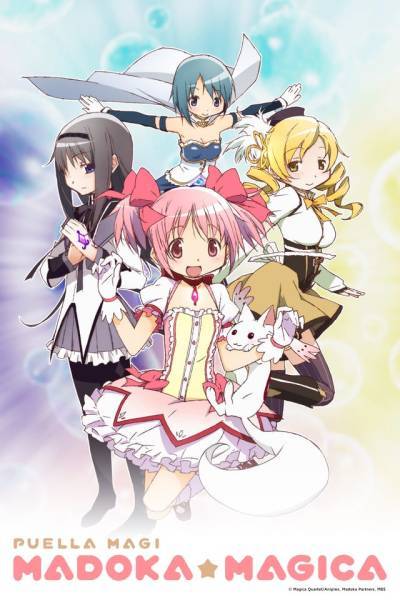

They both have redemption theme so I guess it's close enough or something.
#hazbin hotel critical#hazbin hotel criticism#hazbin hotel critique#anti hazbin hotel#puella magi madoka magica#pmmm#avatar the last airbender#atla
21 notes
·
View notes
Text
Ramblings About Ep. 1 of the New ATLA Adaptation
Okay, so the other day, I watched the first episode of the new live-action ATLA adaptation (only episode 1, I haven't seen the rest and don't really plan to), and I felt like I should probably share my thoughts (a large part of this is just me hyper-analyzing story-structure stuff).
I'm not quite sure how to feel about the fact that they started before the Air Nomad genocide and at the start of the war, but I kinda like it. It is a major change from the OG show and affects the flow of it, but it's not a terrible decision, and is actually kind of interesting. It also adds something very interesting to the viewing experience and perspective of the show's story.
On the one hand, starting with Sokka and Katara added a bit of mysticality to Aang's appearance as an airbender. We start with the knowledge that airbenders are rare/unfamiliar to a lot of people now, and the idea that they haven't been seen for 100 years is less of a surprise. But that makes Aang all the more surprising. He is a mystery, someone only heard of in stories. It makes airbenders as a whole a more grand reveal.
"The Storm" is also an excellent episode, and makes our perspective on Aang change in an interesting way. We start out viewing him from Katara and Sokka's perspective. He is a silly kid who is slightly mysterious, but is also the savior people have been waiting for for generations. But then the episode "The Storm" comes, and we see a whole new side to him. He goes from "goofy kid" to a really tragic character.
Imagine if we were first introduced to Katara when she was a kid and before her mother died, then saw the Southern Water Tribe raid. Or if we were introduced to Zuko starting at the meeting where he yells at the general, then see the Agni Kai with his father. The emotional impact of both those events would be very different, and out perspectives on those characters would be very different.
Instead of seeing Katara as a motherly and kindhearted, yet inexperienced young girl, then slowly realizing there is a lot more under the surface that she is hiding from everyone, we would start out seeing her as a tragic character who is hiding a great loss. Instead of seeing Zuko as some asshole prince, then learning his backstory after establishing him as an asshole, we would start out on his side and see his downward spiral from there. Our expectations for who they are as characters would be completely different, because our introductions and starting points would be completely different.
But the fact that those would be different doesn't mean that those would be inherently bad. Just a different way of telling a story. It gives the viewer a completely different perspective of the character as a whole despite telling all the same events. Telling the events in a different order changes the viewing experience drastically, but it doesn't mean either method is wrong.
The fact that we start out with the war makes for an interesting plot-twist for those who haven't seen the original show and know nothing about it. When we start out with the war and the Air Nomads, it makes airbenders feel like a part of the norm. They are not quite as mysterious, and are much more familiar to the audience. When we learn of the war, that obviously becomes the point of interest for us. However, if you go in completely blind, you may expect for the plot to partially be about stopping the war before it starts, or preventing the Air Nomads from getting attacked. Your expectations for what will happen in the show are completely different.
We see the Air Nomads as a natural part of the world, and our starting perspective/main introduction to the world (the first two scenes before that are a bit to vague to be used as proper introductions to the world, while the Air Nomads are a bit more solid). They are the norm, and while we likely don't expect to stay with the Air Nomads forever, we likely expect them to remain a part of the world. They are essentially "home" to us, the same way the Southern Water Tribe felt like "home" in the original, even though we were only there for two episodes.
They are still home to our main characters and the starting setting, and thus, us. It is the familiar since it is the strongest point of introduction to the world. So every new location introduced after that will feel unfamiliar, while the starting location will not. This is the case with the Air Nomads. Everything outside of them feels unfamiliar because they are not our starting point of reference. So when the Air Nomad genocide occurs, it is a lot more shocking and upsetting.
Imagine if, in the original show, the reason Katara and Sokka had to leave with Aang wasn't just because they were helping him, but because Zuko and the firebenders burned down the entire village after beating Sokka in the duel. This killed everyone inside, and left Katara and Sokka homeless, with nowhere else to go. It would be a whole new degree of horrifying.
Going back to the point on the Air Nomad genocide and the airbenders in general. We were introduced to Monk Gyatso early on, not as a mysterious mentor we hear about secondhand or in flashbacks, but as one of the major characters who we know a bit more personally. Maybe we expect him to die, but not exactly like this. And more importantly, we don't expect for all the other airbenders to die (unless you guessed based on the title of the show).
These were our main characters. This isn't supposed to happen. And yet, it does. We can understand the anguish that Aang feels, because we lose our main point of reference at the same time he does. Monk Gyatso's death also has a tiny bit more impact and feels more like, say, Obi-wan's death. While I think his death-reveal was a bit more emotional in the original, that's because the acting and music and directing was better. If those elements stayed the same, then I think his death would likely be even more emotional than the original (I will touch on this more later). He is our starting point not just for Aang, but for the viewer as well. He feels like our mentor rather than "Aang's old teacher." He is not a past-tense or flashback, but a present tense character who is killed off.
This all puts us into Aang's shoes a bit better, and we experience the loss alongside him. It feels less like seeing a loved one grieve and hearing about the one's they lost secondhand, and more like grieving with them. But that's not the only thing we experience alongside Aang, or the big value of starting before the timeskip.
Remember how I brought up plot-twists? Well, this is the other interesting advantage of starting with the beginning of the war and the Air Nomads. First, we have already experienced the loss and tragedy of the Air Nomad genocide. While Aang doesn't know about it until a bit later, we are still essentially grieving the loss alongside him.
But not only did we not expect the Air Nomads to all get killed off, we definitely did not expect a 100 year timeskip. And the best part (which I was hoping they would do as soon as I realized they were starting with the Air Nomads) is that they don't actually tell us until they tell Aang. We get a period of time where we don't realize that that much time has passed. We are likely expecting it to take place soon after the Air Nomad genocide, and that it will be a recent event. At most, it could be a couple of years or so. Maybe even just a year. They've been at war, but not for that long.
We can even assume for a bit that maybe this small village is just so remote that they've never met other benders before, or at least airbenders. Maybe they heard about the genocide, and didn't expect there to be survivors, but it would still be relatively recent. We think that they are in the same period as us, and maybe not the same exact situation, but generally a similar international one. We expect Aang to still be in his time. The framing is actually perfect for this. Sure, there will be a few moments that will feel...off...but everything can be excused.
So when they reveal that actually, this is a 100 year timeskip, it is worldshaking. Imagine that in most other shows. A character gets knocked out and is found in a new location by a few other characters, and things seem mostly normal. But then they throw us and the character a curveball by revealing that they've been missing/unconscious for 100 years and everything has completely changed. That's absolutely wack.
I will admit, based on how things were set up, I was a little disappointed with the payoff of the "plot-twist". The most interesting part of starting at the beginning of the war before the genocide is that the 100 year timeskip becomes much more shocking. We are mainly seeing things from Aang's perspective, so the shock of this revelation should be just as impactful for us as it is for him.
But it doesn't feel like a big enough moment. It feels a little rushed over. I think this is due to the same problems as Monk Gyatso's death. The music/sound design, direction, and acting aren't as good and don't have the same punch to them, thus taking away the impact of what should be a powerful moment. I think it was an interesting idea, but the payoff kinda defeated the point.
~~~~~
While going to the air temple makes sense in terms of character logic, I feel like the story-structure automatically took away the impact of Aang discovering Gyatso's body. Yes, as I've been saying, I kinda like them starting with the Air Nomads and then showing the genocide, but since they changed the story structure and emotional beats, it changes what scenes are and aren't necessary.
The episode "The Southern Air Temple" is very specific in how it tells its story, and the buildup to discovering Gyatso's body really only fits with the original episode. I think that maybe this could have worked if Aang coming back to the Air Temple was its own episode like in the original show and it took place a few episodes after episode 1. Like, we've already been on one or two adventures with Aang, Katara, and Sokka, and while they aren't besties yet, they are still beginning to establish a bond. We also see Aang still being at least slightly hopeful about there still being other airbenders around, which could be pretty sad since we already know that they're gone and it hasn't hit him yet.
Then, there is an episode where he is wandering around the Air Temple like in the original, and there is an intense tension throughout the episode as he gets closer and closer to Gyatso's body. We know Gyatso's dead, but Aang doesn't. We know that him seeing Gyatso's body is inevitable, but there is still a lot of tension in waiting for the inevitable. So it could be a really heartbreaking episode, because we know exactly what's going to happen, but we can't stop it.
So when he finally discovers Gyatso's body, it's like a gutpunch. And that's when the OG scene plays. The fact that it's a few episodes later also adds an impact to Katara's line about her and Sokka being Aang's new family. We experienced the loss of Aang's old family, and then we realize that the water tribe siblings have become Aang's new family. It makes it more heartwarming. Yes, Aang has lost, but he has also found.
~~~~~
I will admit, despite the controversy, Sokka's actor is pretty good. Maybe that's just because the movie lowered my expectations by a lot, but he was the most entertaining character. I laughed at a few of his jokes, and he was fun.
I do see people's problems with the sexism being taken away. The first episode works well enough without the sexism, and introduces a new, pretty interesting arc for Sokka (being a teenager expected to lead when he's not ready. That was slightly the case in the OG, but it more focused on other elements of this) which slightly parallel's Aang's arc of responsibility and putting expectations on kids/teens that they shouldn't have to handle. But Sokka's sexism arc was already pretty interesting and unique, and his toxic masculinity made his arc very intriguing. His character was very fun to look at through that lens, and slightly played into the idea of expectations.
I'm also unsure how this will work for the rest of the series. I mean, Kyoshi Island. What will they do with that? Legitimately. What is there to do? That was half the point of that episode, and it was awesome.
~~~~~
People were right when they said the special effects looked great, way cooler and cleaner than the movie. The opening scene with the earthbender is a great example of how to adapt bending into a live action form that captures the spirit of bending and does it service. It feels just as grand as in the original show. While I know the the bending moves in the OG were based on real martial arts, it can be hard to recognize just how natural the movements looked in relation to bending when watching a cartoon. But the live action bending made me realize and appreciate the way the elements actually flowed with the movements. They didn't felt random, they felt like there was legitimate physics to it.
I still have one problem with the airbending, though. I know Aang is the Avatar and a prodigy, but he was basically flying at multiple points, specifically when he was first introduced. I feel like he should only be able to do stuff like that with either his glider or when he's in the Avatar state. I was really getting into the episode and was slightly enjoying his introduction, but then he started floating down way too slowly without anything to fully support him (like a glider or even parachute), and it immediately broke my immersion and suspension of disbelief.
Despite being a show about people with either hyperspecific telekinesis or pyrokinesis, as I mentioned above, ATLA feels surprisingly realistic and grounded in its magic system, and bending feels natural with a physics of its own. I don't actually have to suspend my disbelief too hard, because though it can't happen in the real world, it doesn't feel unbelievable. Aang gliding around without a glider or other device to help carry him? Far less believable. Also, where's the airscooter? That made more sense for Aang and felt a lot less weird, and was more in-character. It's also very fun to watch and I'd look to see him do it. Give us back the airscooter.
So bending in the show still has a few minor flaws, and we're only on Episode 1.
~~~~~
Now, obviously, I do have some criticisms. I just like to get the positives out of the way first (though even then, I did mention a few negatives). The main problem that immediately stood out to me (and even my ever optimistic mom) is that the acting felt really stiff most of the time. That was one of the major problems with some of the emotional scenes I mentioned, like Aang finding out how long he'd been in the iceberg, or him discovering Monk Gyatso's body. I think everyone has probably already mentioned it, but I still felt the need to mention it. I respect the actors and feel bad saying this, but the acting lowkey ruined a lot of the first episode for me.
Like, do these characters feel anything ever? I get subtly in acting, but for characters like Aang, he often wears his heart on his sleeve and is very expressive. I actually wouldn't mind at least a little bit of exaggeration, at least for Aang. And while I said Sokka was okay, he could be a little bit better, and like Aang, he could be a little more exaggerated. Like when he's frustrated or annoyed (or most anything really), he seems like the type to have big, physical reactions. He talks with his hands and does things like throwing them up in the air in exasperation. He lets out big groans as he slouches and throws his head back. He's a silly guy, even when he is trying to act tough and serious. Basically get the most naturally funny guy you know and cast him as Sokka.
Katara, like in the movie, basically felt like she wasn't even there, or was standing around all the time. At this point, it feels like nobody will be able to capture the essence of the OG Katara, or they don't know how to. I saw a post recently that mentioned that Katara is actually a pretty angry person sometimes, and while she is very sweet and caring, she is a 14 y/o girl who is prone to outbursts and moments of pettiness. I actually like her best when she is yelling at people and getting annoyed and emotional. She is very flawed and more than just the motherly caretaker.
It feels like they need to add more emotional Katara, and not just the kind who cries. A Katara who is still a teen girl at the end of the day and has childish behaviors like the others. She will have moments of emotional immaturity. She will get overeager and impulsive (like when she stole the water scroll). She will be playful and silly. She will be angry and protective in a way that makes her reckless. She will make poor decisions. She will become strong and badass. She is so many things.
And yet, it feels like she is never given the spotlight, attention, and variety she deserves in these adaptations. Sorry for rambling about Katara, I just have so many Thoughts™ on her.
~~~~~
I don't have too much else to say, but there is one moment that unintentionally made me giggle, and I need to mention it. In the final few minutes of the episode (possible part of the final shot or something), Zuko runs over to his desk and starts furiously painting something on a piece of paper. He pins it to the wall in front of him, and it is a very shitty ink painting of Aang. And I find it so funny for some reason? I think it was because he was painting with such passion and intensity like it was the most important thing in the world, only for it to be contrasted by a poorly drawn scribble.
~~~~~
Anyways, that's all I have in my brain rn (or at least all that I care about enough to say anything about). These were just random, slightly disconnected ramblings rather than a properly written review, but I hope you related to them anyways or at least think they are interesting.
#atla#avatar the last airbender#atla netflix#atla live action#atla aang#aang#netflix avatar#atla fandom#avatar aang#atla review#live action atla#avatar the last airbender review#critique#media critique#review#show review#monk gyatso#katara#sokka#first episode#new show#first watch#reaction#animation#animated series#cartoons
14 notes
·
View notes